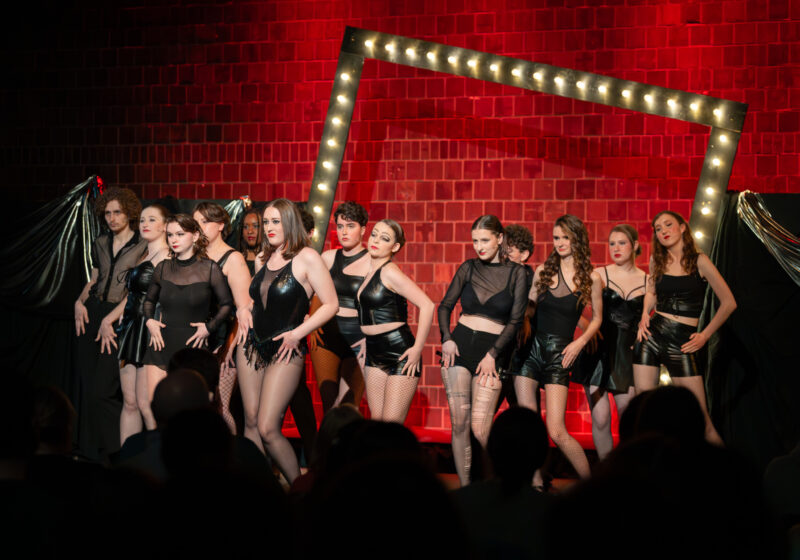The night featured various forms of dancing including lively, pop-infused modern dance from Ma’Frisah, Ethiopian-style routines from Axum, and sensuous movements from Indulgence. Each routine included individual dance soloists then shifted into couple formations. The entire group then united in fluid, synchronized movements. The featured dance soloists emphasized that it is up to each individual to tell his story as a representation of his culture, as noted by Emmanuel Ogunmola, a Nigerian psychologist and the keynote speaker of the evening. “The stories on the news are not what defines us,” he explained. “We are what defines us.”
Several poetic performances from members of No Disclaimers captured the power of the individual in defining his own, unique story by describing their own experiences. Cofounder of the group, SeQuoia Kemp, described the experience. “You can be whoever you want to be in that moment…you can be empowered, you can be vulnerable, you can be brave, and those around you can learn something new about you that they may have not had the opportunity to in regular conversation.”
The couple-style dance formations acted as a representation of the domestic influence contained in each family, especially during colonial times. This concept was highlighted through the performance of dramatic monologues, adapted from the novel “Nervous Conditions” by PASA president Akan Nelson. The monologues told the story of a Rhodesian girl, Tambu, who becomes educated by colonial missionaries against the wishes of her parents. However, while at the mission school, she encounters her cousin’s struggle with Rhodesian versus Ethiopean culture. The scenes featuring family highlighted the idea that the individual was not only a representation of themselves but of the entire family. This added greater responsibility to their actions. Nelson’s main goal in creating the narrative performance was to provide a more personalized perspective and to create an example of “an African with independent emotions and opinions.” In addition, Nelson referred to current conflicts between the ethnic groups, creating a beneficial sense of awareness.
The sense of community shown in the dance routines was conveyed through Ogunmola’s speech as he declared, “We are a kind people. We are a loving people. We are an understanding people.” It is the responsibility of each individual to define himself in a unique way while still remembering his cultural heritage and be proud to be a part of it. PASA member Eyram Adedze expressed that being a part of PASA really “[helped him] stay connected to home.”
Overall, the banquet was a success in bringing to life aspects of African culture, providing entertainment and reminding everyone of the importance of having pride in your own story as an individual and member of a culture.
Kibler is a member of
the class of 2017.
SA Elections
SA Senate election won by everyone who ran
The executive race was the only competitive one in this spring’s SA election. Everyone who ran for senate positions —…
applejack
Dam Funny: A Review of “Hundreds of Beavers” – North America’s Largest Rodent Takes Center Stage
Our protagonist awakes in shoulder-deep snow. He is alone, without any worldly possessions. His applejack business is as good as gone.
musical
ROC Players’ “Chicago” is Criminally Good
The rise to the spotlight is no easy journey, especially when you’ve got blood on your hands and a life…





